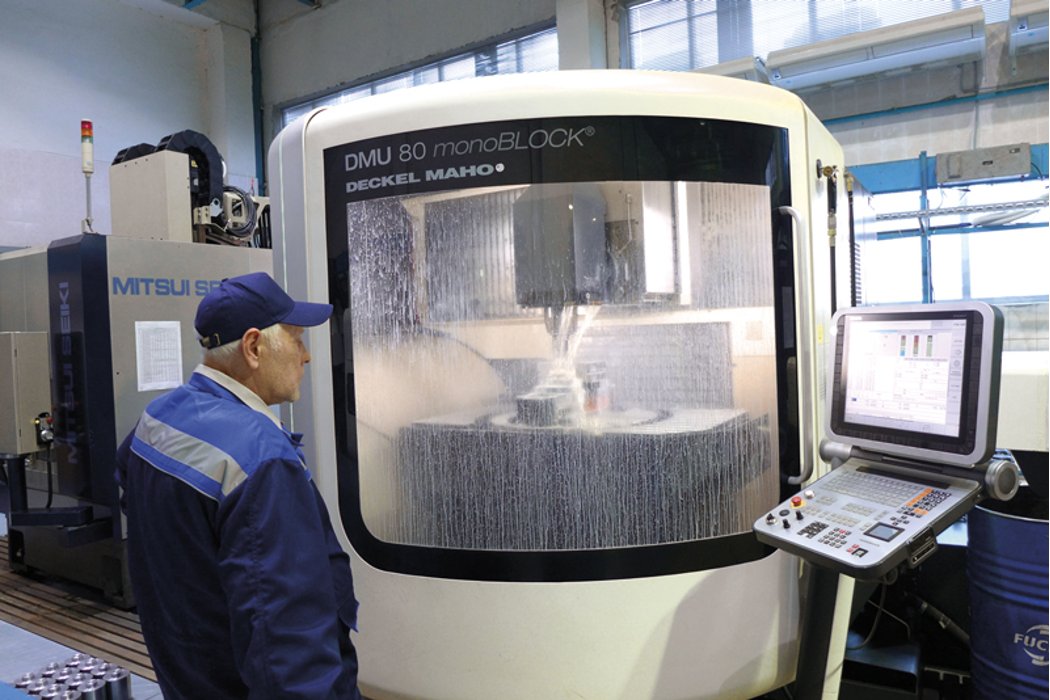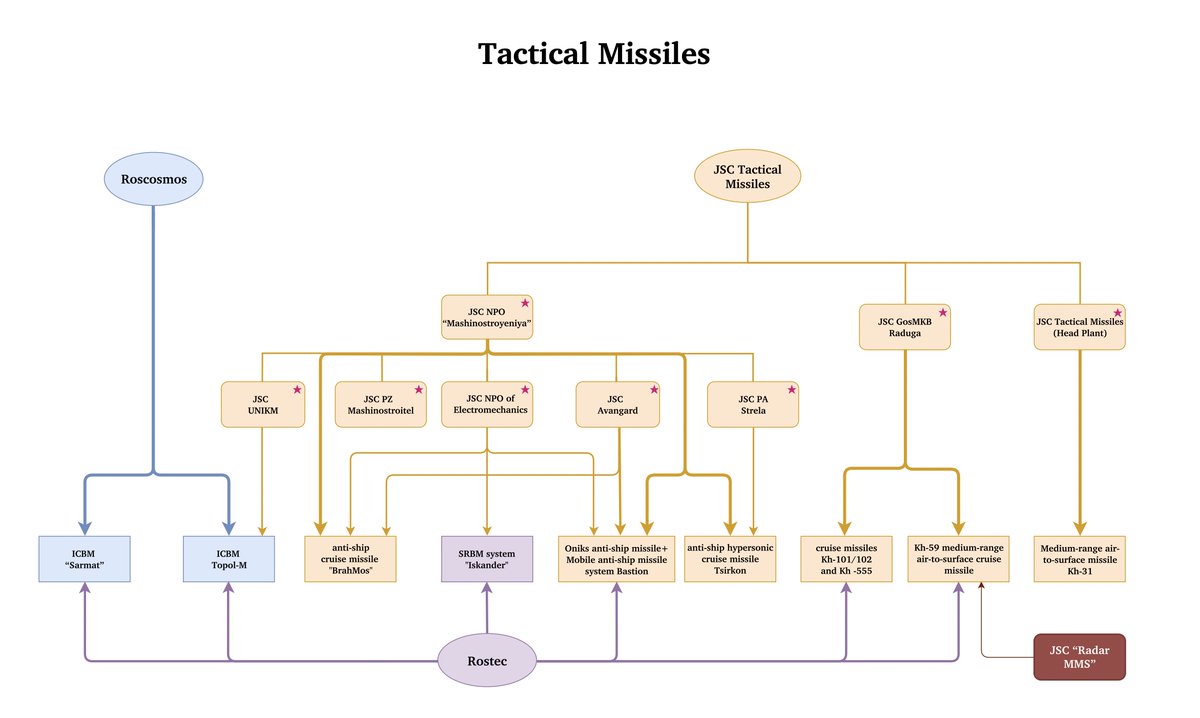My team has documented the entire Russian missile manufacturing base. That is 28 key ballistic, cruise, hypersonic and air defence missile producing plants associated with four corporations of Roscosmos, Almaz-Antey, Tactical Missiles and Rostec
The link is in the first comment
The link is in the first comment

Our report How Does Russia Make Missiles? is already available for download
By the next weekend, we will be publishing the first OSINT sample, illustrating our methodology & approach. The rest of our materials will be made available laterrhodus.com
By the next weekend, we will be publishing the first OSINT sample, illustrating our methodology & approach. The rest of our materials will be made available laterrhodus.com

Key takeaways:
1. Missile production is mostly about machining
2. You cannot produce components of tight precision and convoluted geometry otherwise
3. Soviet missiles industry performed most of its machining manually
That was extremely laborious and skill-intensive process
1. Missile production is mostly about machining
2. You cannot produce components of tight precision and convoluted geometry otherwise
3. Soviet missiles industry performed most of its machining manually
That was extremely laborious and skill-intensive process

4. As a result of the Soviet collapse, Soviet military industry died
5. Supply chains and knowledge ecosystems that used to support it died, too
6. That includes both the domestic machine tool industry
7. And the system of vocational training & apprenticeship
All gone, forever
5. Supply chains and knowledge ecosystems that used to support it died, too
6. That includes both the domestic machine tool industry
7. And the system of vocational training & apprenticeship
All gone, forever

8. By the year 2000, when Putin came to power, the industry was most literally laying in ashes
9. The tacit knowledge that the Soviet military production relied upon was gone, irreversibly
10. Putin was not to "modernize" the industry. He was to create it anew
9. The tacit knowledge that the Soviet military production relied upon was gone, irreversibly
10. Putin was not to "modernize" the industry. He was to create it anew

11. In the 2000s, Putin brought the industry back from dead with the mass import of automated CNC equipment from Europe, especially Germany
12. That allowed to substitute the skilled manual labor Russia now lacked
13. And reboot the production of sophisticated weaponry
12. That allowed to substitute the skilled manual labor Russia now lacked
13. And reboot the production of sophisticated weaponry

14. As every human decision presented a potential point of failure, Russia had to minimize the human factor in the production process
15. Thus, it became reliant upon the all-in-one, fool proof solutions allowing to largely exclude human decision making from the factory floor
15. Thus, it became reliant upon the all-in-one, fool proof solutions allowing to largely exclude human decision making from the factory floor

16. Siemens has been the one singular company in the world capable of providing Russia with a sealed chain from the CAD to CNC controller
17. Minimizing the human factor & improving consistency
18. At the cost of low flexibility, and high dependency upon the one single supplier
17. Minimizing the human factor & improving consistency
18. At the cost of low flexibility, and high dependency upon the one single supplier

19. In 2024, the Russian machining capacity relies upon the uninterrupted supply of spares & tooling from, plus software support by the U.S. allies
20. Due to the wide gap in technology, critical supplies from the West are impossible to substitute with the Chinese manufacture
20. Due to the wide gap in technology, critical supplies from the West are impossible to substitute with the Chinese manufacture
Scope of our investigation
A sample of 28 key enterprises belonging to or associated with Roscosmos, Almaz Antey, Tactical Missiles and Rostec.
We will be publishing an OSINT sample illustrating our method next week. The rest will be available to the public later




A sample of 28 key enterprises belonging to or associated with Roscosmos, Almaz Antey, Tactical Missiles and Rostec.
We will be publishing an OSINT sample illustrating our method next week. The rest will be available to the public later




This investigation would be impossible to conduct without the financial support of our donors. It started with the outrageously generous donations from our subscribers, of whom I would like to specifically mention @BErickson_BIO and @badita
@BErickson_BIO @badita It continued thanks to the Emergent Ventures grant from the @mercatus Center (George Mason University), obtained through the good graces of @tylercowen
Among our collaborators, we are especially grateful to Sean Byrnes who edited and proofread our original drafts and to Mikhail Beliansky who helped us with processing and visualising the raw data
If you want to support our work, you are more than welcome to donate:
Card payment: (on the website )
PayPal: Galeev.info@gmail.comRhodus.com
Card payment: (on the website )
PayPal: Galeev.info@gmail.comRhodus.com
Or crypto:
ETH 0xA9FA4454cC3EC0Ff521926BB5F8D4389bA0e665a
BTC 14b3XMVwZqr7xQu5Ck7tfDSU1EG83jUptq
ETH 0xA9FA4454cC3EC0Ff521926BB5F8D4389bA0e665a
BTC 14b3XMVwZqr7xQu5Ck7tfDSU1EG83jUptq
• • •
Missing some Tweet in this thread? You can try to
force a refresh





